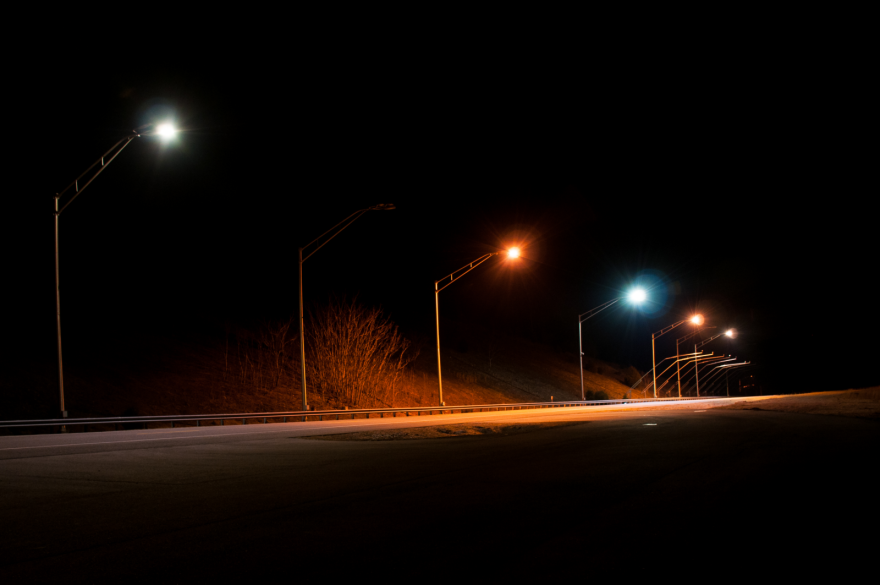International Dark Sky Week is April 15 to 22. Virginia has four parks that have been designated “dark sky parks."
West Virginia has three.
These remote areas without light pollution have grown in popularity in recent years, attracting star gazers and tourists who want to escape the bright lights of cities. But just how much does light pollution affect our health?
A recent study from Virginia Tech’s Transportation Institute (VTTI), in collaboration with neuroendocrine researchers at Thomas Jefferson University, looked at whether LED road lighting affects our sleep patterns.
“It’s really important to look at light when you put lighting on the roadway, or even your house at night,” said Rajaram Bhagavathula, one of the researchers who led the study.
“You have to be careful, making sure that you really need the light at night.”
Back in 2016, the American Medical Association released guidance on roadway lighting, advising city planners and policy makers to avoid using LED lights.
Their reasoning is that blue-tinted LED lights can affect our melatonin levels- making us have a tougher time falling, and staying, asleep.
But the recommendations were largely based on laboratory studies that showed people a large wall of blue light. In real life, drivers and pedestrians never encounter that much light.
Bhagavathula’s team at the VTTI began a different type of study— to look at melatonin levels for people who were exposed to real-world examples of roadway lighting.
They tested melatonin levels of pedestrians and drivers, as well as people who sleep next to roadways. They found that the type of lights used on the roadway actually don’t significantly affect melatonin levels. LED lights, traditional lights- even no lighting- it didn’t change people’s sleep.
Roadway lighting has been shown to reduce crashes, and LED lights use less electricity.
However, this doesn’t mean city planners should coat roadways in unlimited light.
Bhagavathula advised that we should consider all the risks and benefits when choosing how much light to use along roadways, and in our own homes, especially at night. “Light is not something like that you use like a butcher knife,” Bhagavathula said. “You use it like a scalpel, to actually solve the problem that you want.”
This report, provided by Virginia Public Radio, was made possible with support from the Virginia Education Association.


